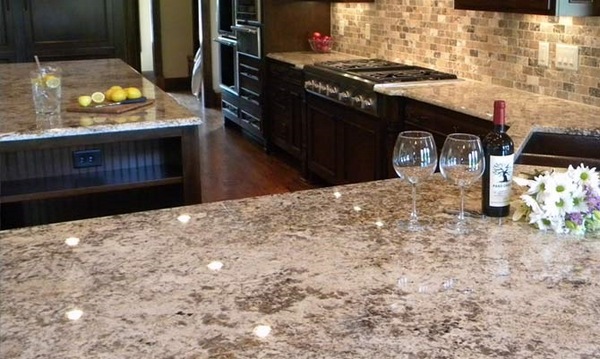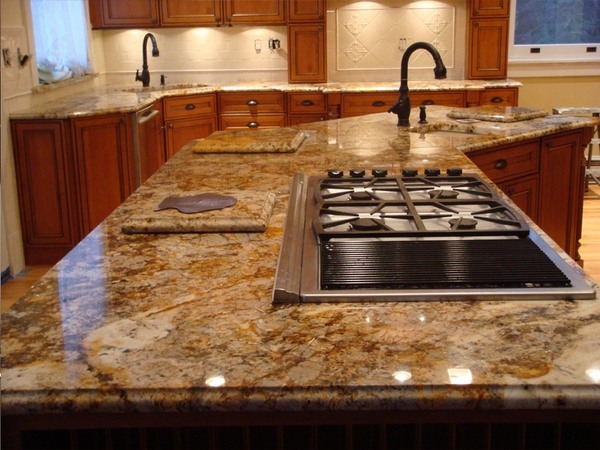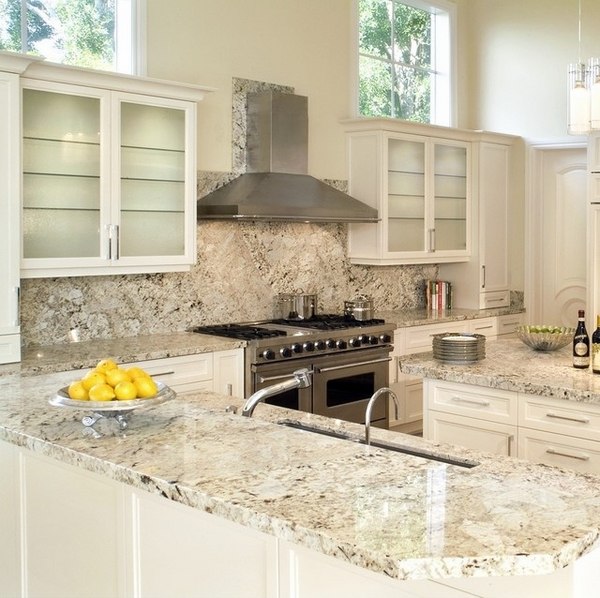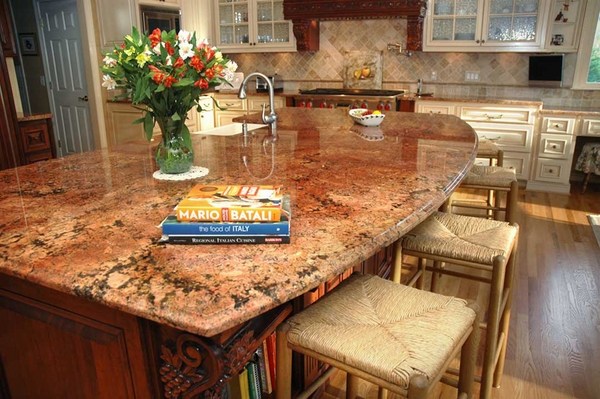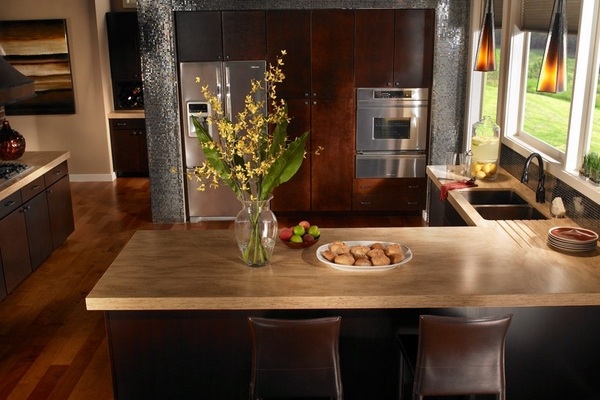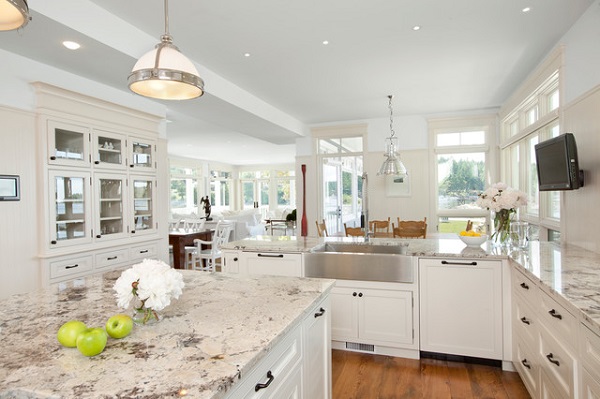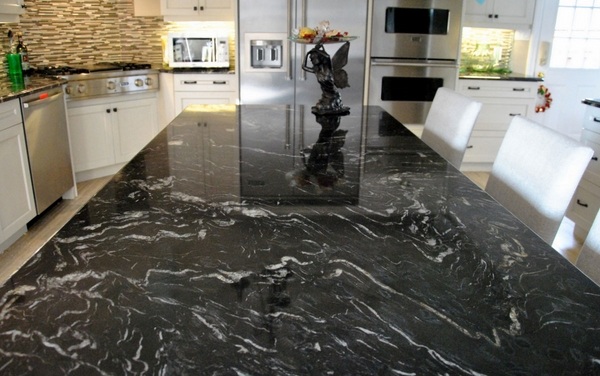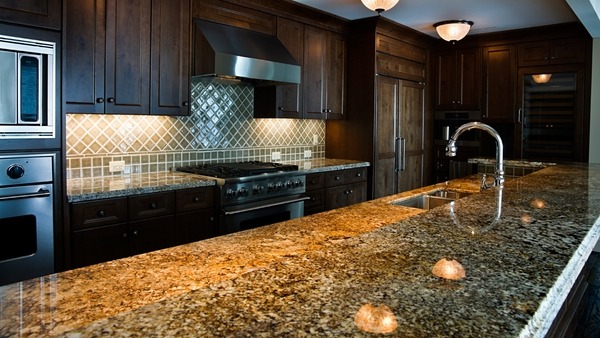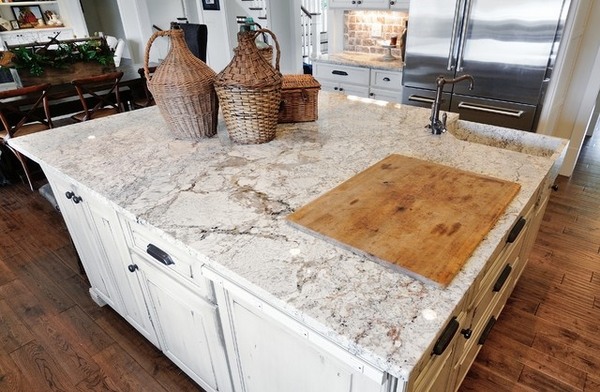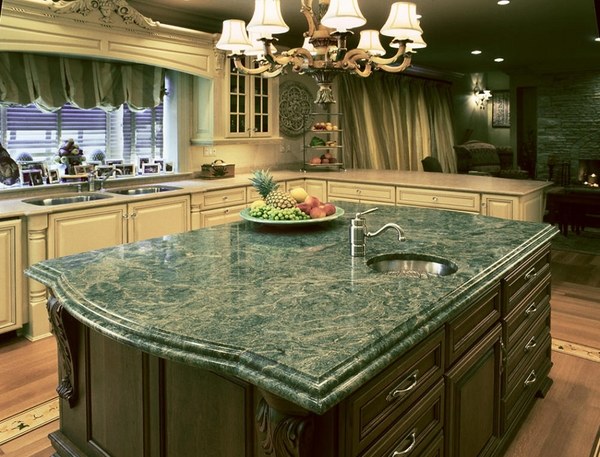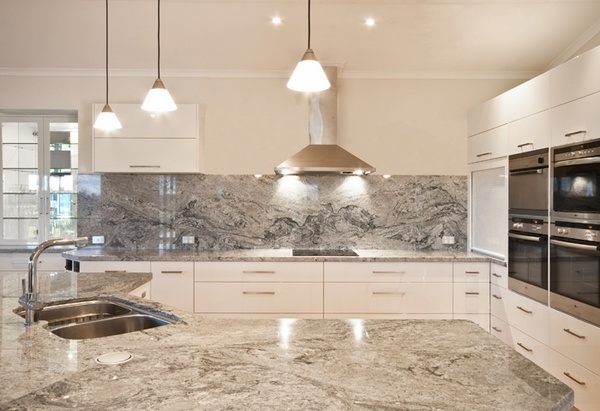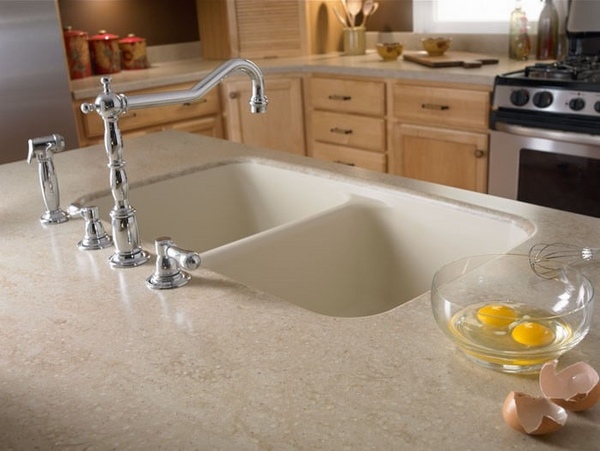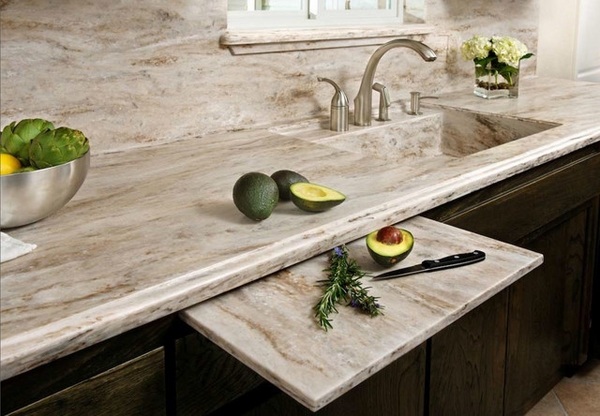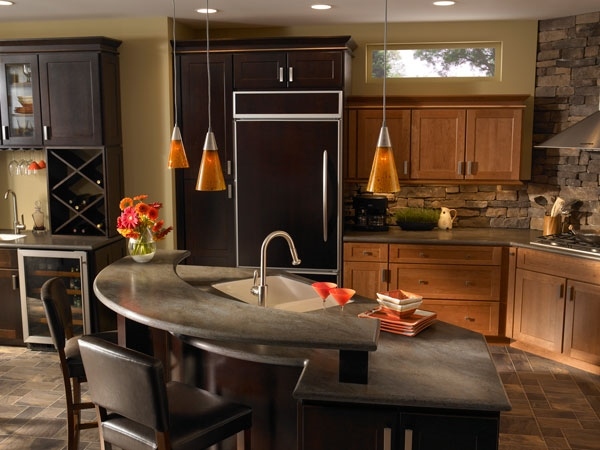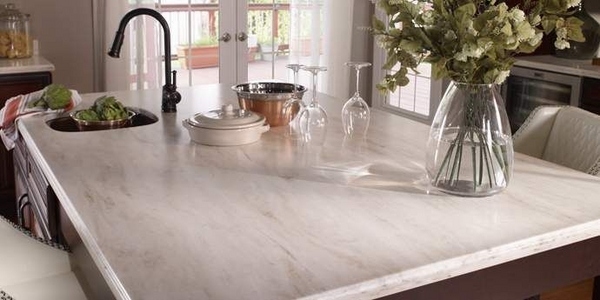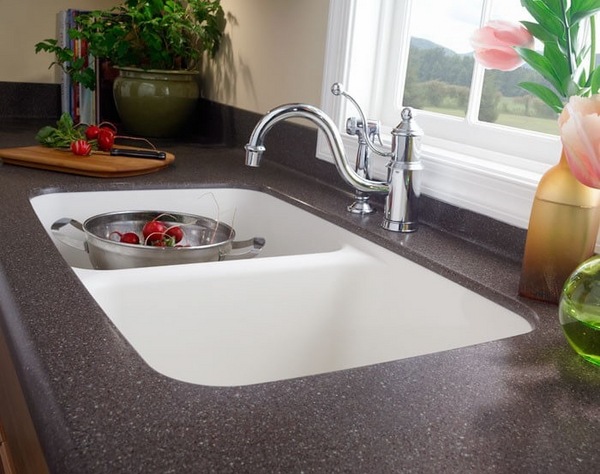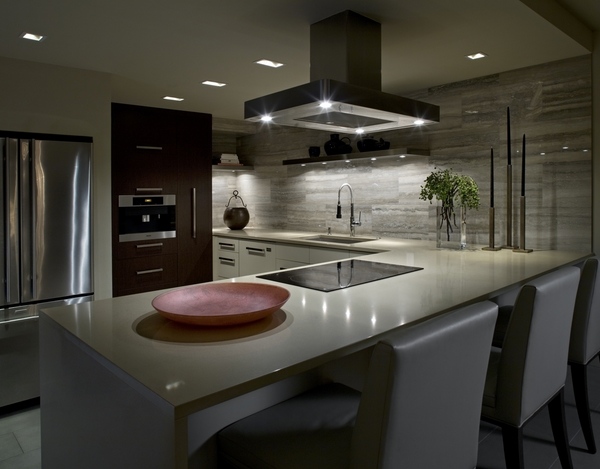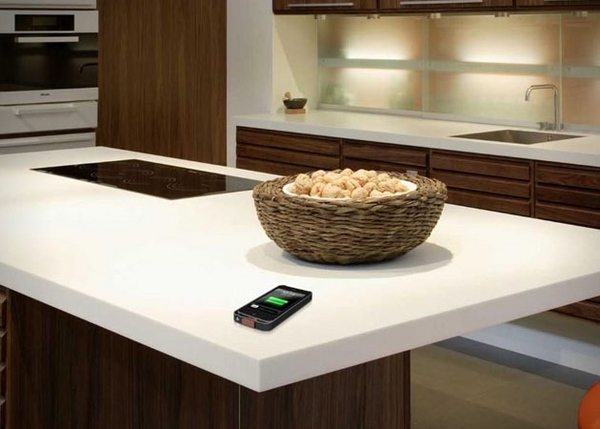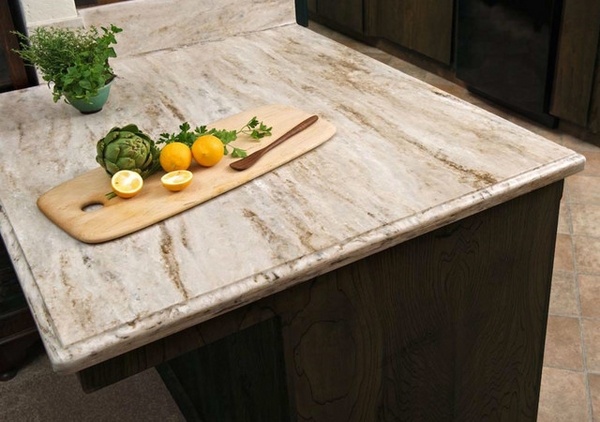It always comes to making choices. Do we choose a natural material or a manmade material? How are they different from one another? Which one is better? We shall look at two very popular kitchen countertop materials and see the comparison of Corian vs Granite. There are many people who support one or another pointing out the advantages and disadvantages of each stone.
Corian vs Granite – origin and appearance
When we compare Corian vs Granite we have to start with the origin of both. What is Corian and what is granite? These are completely different materials. Corian is a man made product which consists of 66% minerals and 33% binding resins. Granite is a natural stone, quarried from earth and cut into slabs. The surface can be honed or polished but nothing is added to the stone itself.
The appearance of granite and Corian is more or less a result of their origin. Granite slabs differ from one another and each one has its own unique color, veining and overall appearance. Corian is mass produced and can be designed to look like genuine granite. In terms of color options, Corian is available in a wider variety of colors, styles and patterns than natural granite.
Corian vs Granite – performance and maintenance
When choosing the best kitchen countertop, besides the aesthetic appeal, we have to compare the characteristics of the materials. It is not easy to determine the winner in Corian vs Granite battle but let’s look at the performance and maintenance of these two.
Durability – Granite is a durable and solid rock and provides a great heat, stain, scratch and chemical resistance. It is naturally porous, which means that granite can absorb spills and although it is not easy to damage a solid rock like granite, over time there is a possibility that it may chip or crack. The material requires an initial application of a sealant and periodical re-sealing to prevent the surface from stains but generally t requires less maintenance than Corian.
Corian, on the other hand, is nonporous which means it cannot be stained and very easy to clean. However, it is prone to scratches, and high temperatures will damage the surface. You cannot place hot pots and pans directly on a Corian countertop.

